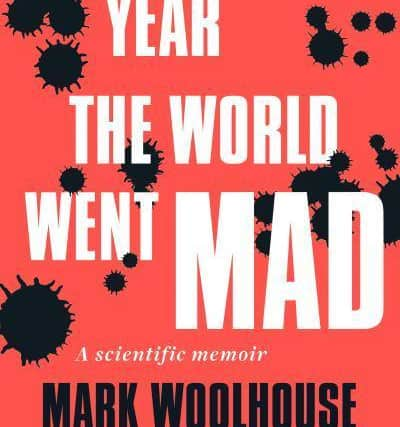Book review: The Year the World Went Mad, by Mark Woolhouse


Mark Woolhouse is one of Scotland’s leading epidemiologists. Professor of Infectious Disease Epidemiology at Edinburgh University, he is a member of the Scottish Government’s Covid-19 advisory group and SPI-M, a subcommittee of the Scientific Advisory Group for Emergencies which advises the UK Government. His “scientific memoir”, The Year the World Went Mad, is the latest in a series of insider accounts of the Covid-19 pandemic, giving readers behind the scenes insights into some of the decisions, advice and concerns of scientists during the early months of the crisis.
Criticism of the way the pandemic was handled is a very crowded field, but Prof Woolhouse’s book stands out. Instead of the usual complaints that governments simply acted too slowly or too recklessly, he argues that decision-makers (and everyone else) “went mad”, and that lockdown, that tool to suppress Covid-19 which defined our lives for over a year, was a mistake.
Advertisement
Hide AdIt is hard to read a book arguing that some of the greatest sacrifices made in 2020 and 2021 were for nothing. Woolhouse puts forward a compelling case against lockdown, however, wondering if the harsh measure may have caused more harm, in terms of economic, social and wider health impacts, than Covid-19 itself. While some form of lockdown was probably inevitable, he argues it dragged on for too long, should not have been used beyond the initial stages of the pandemic, and that the closure of schools had little benefit. Key findings were not taken on board as science learned more about the virus, including that Covid very rarely seriously affects young, healthy people, and that transmission outdoors is unlikely. Instead of the “lazy” solution of blanket lockdowns, he suggests, Scotland should have focussed on protecting the most vulnerable and those who regularly came into contact with them.


It is very easy now to ask why Woolhouse did not make his case a little more loudly while these decisions were being made, rather than in a scathing memoir written with the benefit of hindsight. But he gives examples of repeatedly having put forward these views as early as 2020 and being ignored by politicians, and even other scientists. In some cases he was plagued by hate mail from members of the public, a sadly not uncommon experience for scientists during the pandemic.
While the book reads a little like a retrospective vindication of his own arguments, Woolhouse maintains that his aim is to prevent similar mistakes in future by making “lockdown sceptics” of us all. His point is convincingly made, and in many cases he will likely succeed. The Year the World Went Mad is a compelling read, comprehensively laying out the case against lockdowns alongside clear explanations of basic epidemiological concepts, and fresh insights from the front line of scientific advice during the pandemic.
The Year the World Went Mad, by Mark Woolhouse, Sandstone, £16.99
A message from the Editor:
Thank you for reading this article. We're more reliant on your support than ever as the shift in consumer habits brought about by coronavirus impacts our advertisers.
If you haven't already, please consider supporting our trusted, fact-checked journalism by taking out a digital subscription at https://www.scotsman.com/subscriptions